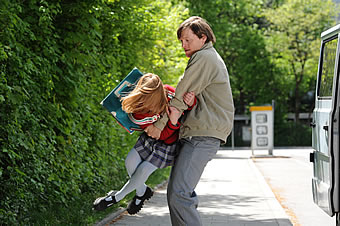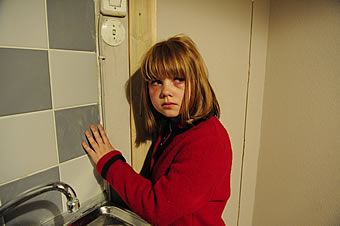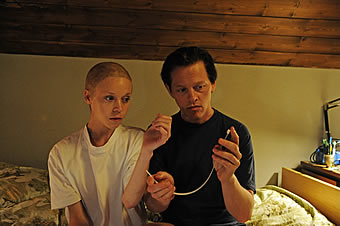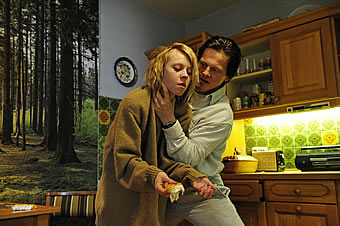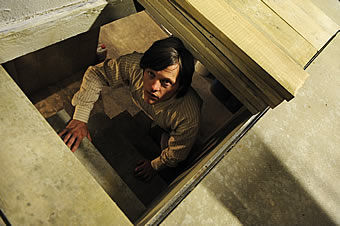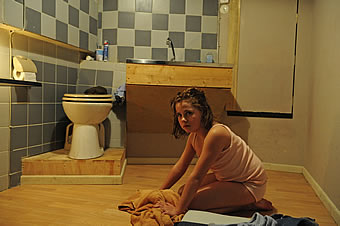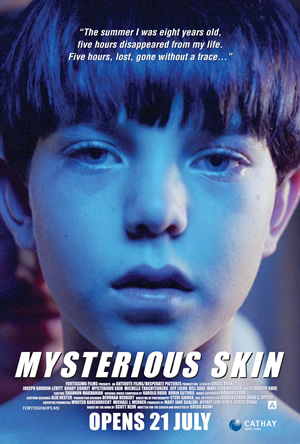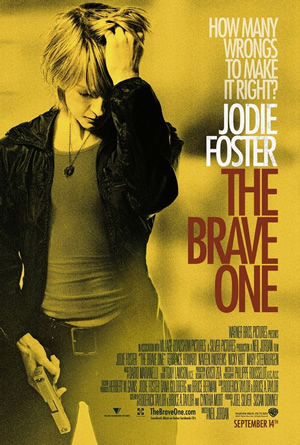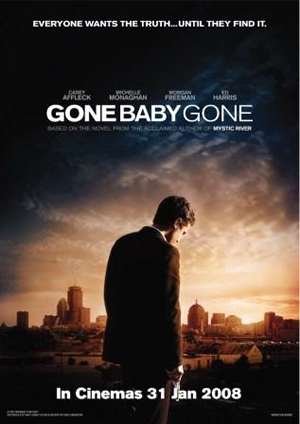3096 DAYS (2012)
Genre: Drama
Director: Sherry Hormann
Cast: Antonia Campbell-Hughes, Thure Lindhardt, Amelia Pidgeon, Dearbhla Molloy, Trine Dyrholm
RunTime: 1 hr 49 mins
Rating: M18 (Nudity and Sexual Violence)
Released By: Shaw
Official Website: https://www.facebook.com/3096.film
Opening Day: 4 July 2013
Synopsis: Vienna, March 2, 1998. Natascha Kampusch is ten years old when she is dragged into a white van by unemployed communication engineer, Wolfgang Priklopil, on her way to school. The kidnapper does not want a ransom – he wants to own the girl. Beneath his house in a middle class residential area, Priklopil has built a secret cell to imprison her. This two by three meter space will be Natascha’s barren prison cell for the next eight and a half years: Storybooks, favorite cookies and goodnight kisses serve to soften violence, humiliation and constant starvation. But this prison does not break Natascha Kampusch – it makes her stronger. Each day, each breath is a small defiant victory. In 2006, she finally manages to escape and Wolfgang Priklopil commits suicide.
Movie Review:
It was only seven years ago that the sensational news of Natascha Kampusch’sescape was splashed across all major dailies, but the horror of her predicament and how she survived being held captive for more than eight years in a small room the size of a cubicle has been a point of curiosity for many.
3096 Days, a film named after the autobiography that Natascha wrote after her escape, is a direct re-telling of her real-life abduction and is not an easy film to watch, but important with all its painful and terrible insight into the human psyche.
Director Sherry Hormann develops the confusion and fear of a young Nataschavery early on in the film, when Wolfgang Priklopil kidnaps and locks her in the basement of his house with the help of an eerily elaborate pulley-and-dungeon-door mechanism. Hormann emphasises the small space in which Nataschais held captive not through the use of multiple close-up shots, but rather, in how shockingly claustrophobic the space appears onscreen, even with the whole room captured in one establishing shot. The painful silence and isolation that the bubbly, rose-cheeked child is subject to becomes an image of abject psychological torment, made worse by the physical abuse that Wolfgang gradually and cruelly inflicts upon her.
The young Natascha’searnest naïvetéturns into bitter resentment and anger as she ages in her confined space. Intensely fearing her captor, she starts to take on a persona for how she should behave and “obey” to avoid incurring Wolfgang’s wrath, a persona which she sometimes appear to take genuine delight in (bordering on a pseudo Stockholm Syndrome thing) and also silently rebel against.
The already-petite Antonia Campbell-Hughes who had a bit-role in the film Albert Nobbs (2011), lost a startling amount of weight for her role in this film, a change as dramatic as Christian Bale underwent for The Machinist (2004). Her skeletal frame and hollow cheekbones heighten her vulnerability as her stunted growth and constant physical weakness intensifies Wolfgang’s control and power over her. There is a scene in which she is ordered to go down into a water tank that is particularly hard to watch. This and many other scenes of an emaciated Nataschabeing abused, mocked at and humiliated are sad, aggravating in a manner not as graphic as Aurore (2005), but strikingly more violent and gritty than Sleeping with the Enemy (1991).
As with many films about psychopaths, an estranged, troubled relationship between Wolfgang and his mother is hinted of, but never really becomes explanation enough for his psychosis.
Throughout the film, the audience will experience feelings of exasperation and dull dread, at times filled with heart-wrenching sympathy for the protagonist and at others sharing her desperate hope for escape. The many slow-motion scenes, including one in the coda, where the director blocks out all diegetic, filmic noise, and replaces it with a vortex of non-sound, dramatically heighten the movement of the figure onscreen, amplifying Natascha’smuted fear and suppression. But alongside the portrayal of grotesque human rights violations inflicted on a single being is also Natascha’s remarkable stoicism under captive, falling into bouts of severe depression, delirium and fantasy, but never really descending into madness.
Movie Rating:




(A harrowing, despairing portrait of mankind at its most perverse and desperate; hauntingly shot and powerfully acted)
Review by Tay Huizhen
You might also like:

Movie Stills
